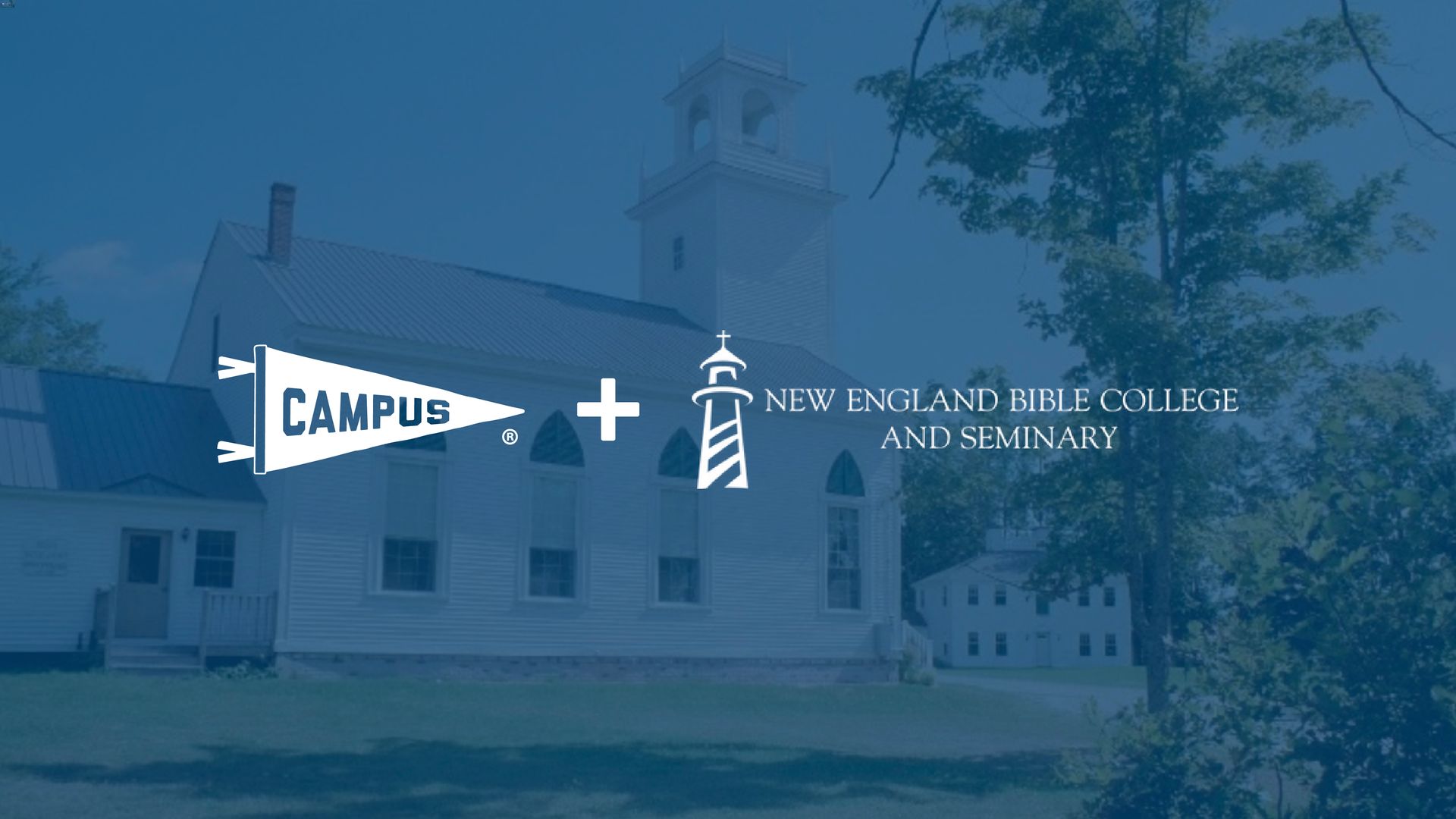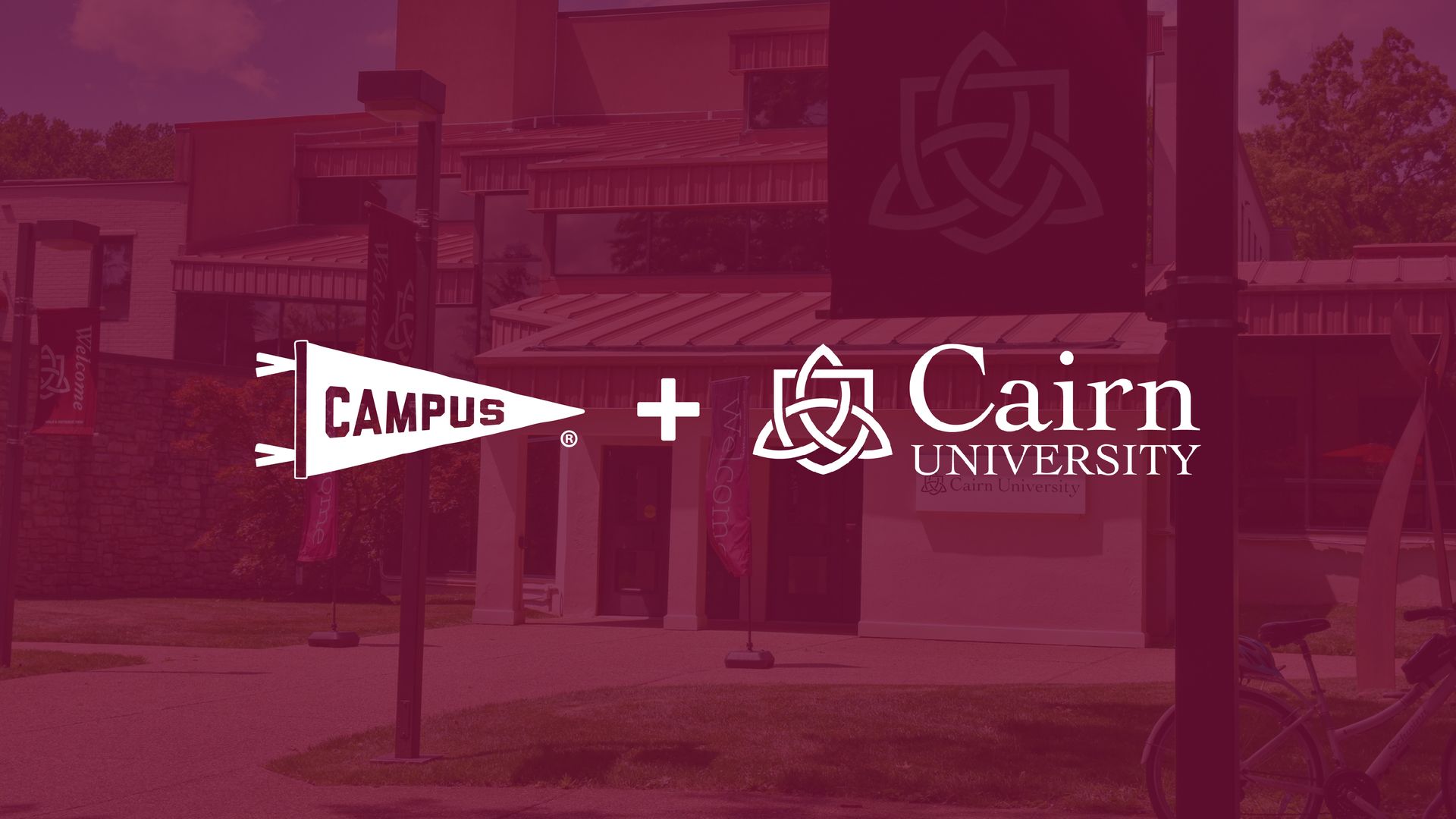Why Campus: Spreading the Good News
Ken Schenck
December 21, 2021

Why Campus: Spread the Good News
Written by Ken Schenck
This is the sixth and final post in a series, "Why Campus Edu?" The purpose of this series has been to explore the many ways that Campus Edu can assist Christian colleges in this incredibly turbulent time in Christian higher education. We have suggested five ways so far.
Campus can help Christian colleges...
- dramatically expand their markets
- enrich their curricula
- significantly enhance their online courses
- for some, make quantum leaps in their infrastructure
- soften the blow when downsizing is happening
In this final post, we want to step back and talk about the raison d'être for Christian colleges and universities to exist in the first place--to provide a context where education can take place within a spiritual, Christ-centered framework.
Campus Edu aims to facilitate the transformation of the world by bringing the good news of Christ to the hearts, minds, and lives of those within its reach.
1. What is a Christian education?
A Christian framework for education should be many-fold, and there is a rich literature on the integration of faith and learning. Interestingly, different Christian traditions approach this question with differing emphases. For example, some focus almost exclusively on the head when they think of faith integration.
However, faith should touch every aspect of a student's life at a Christian college or university. It should obviously impact the way subjects are taught. There is no such thing as an approach to truth that is "just the facts." This is a mistake even some Christian professors have sometimes made. We all have assumptions, presuppositions, and biases that shape how we look at evidence and how we form conclusions. Those who might think, "I'm just a scholar, wherever the facts lead," are unaware of themselves. Our assumptions shape where we look for evidence, and if our assumptions are wrong, the truth won't be within our line of sight.
So Christian education is "faith seeking understanding." It begins with certain assumptions about God and the world. It is deeply informed by the Scriptures. While a true education will not be indoctrination, a Christian university will start from and privilege Christian assumptions and perspectives even as it engages a full spectrum of ideas and evidence.
But the intellect is not the only part of a person. A Christian college should deepen a student's trust in God as well. It should deepen a student's faithfulness to Christ. We are not just intellect as people. Scripture centers our spiritual being in our "hearts" (e.g., Matt. 15:19), not our intellect, and our actions flow from our hearts. A Christian education is thus anemic and far from accomplishing its full purpose if it does not engage the hearts and lives of students.
Nor is this Christian context merely individual. It is relational and social. Jesus and the New Testament say that all of God's expectations of us are summed up in the commands to love God and love neighbor. [1] A Christian college that would not foster growth in love of God and neighbor would thus fall completely off its mark.
2. Taking the good news along
The posts in this series so far have focused on practical and economic matters. That's where the fire is most obvious in the academy. It made sense to focus on the water and foam Campus can bring to the fire.
But make no mistake. The founders and team at Campus see what we are doing as missional. We see young people increasingly abandoning Christian colleges for more reasonably priced public institutions. We see young people increasingly abandoning Christianity itself with a sense that existing Christian institutions are missing something.
At the secular school, they will not get "faith seeking understanding." They will get "seeking understanding apart from faith." They will have to seek out Christian clubs and organizations on campus if they expect to get any spiritual formation during their college days. The potential cost is much greater than most Christian parents and students probably realize.
Campus thus brings this Christian context to bear on this rapidly changing context. Taken in high school or independently, courses are meant to cost about what a community college would cost, and the cost to a Christian college makes it possible for them to charge significantly less. Courses aimed at high school students aim to draw those same students to Christian colleges at the very least to finish up associate's degrees. From there, colleges can try to draw them into finishing bachelor's degrees.
While colleges are in the driver's seat in relation to what they author and offer, Campus has especially desired professors who are known for the way they bring a spiritual dimension to their teaching. Good content is essential, but good content with a teacher who loves Christ with his or her whole heart--that's what you should expect of a Christian college. A good Christian course should privilege Christian perspectives, consider what godly application of the subject matter looks like, and should be taught by a fully devoted follower of Jesus Christ.
3. Go into all the world.
When I was in conversation to work for Campus, it was mentioned that Elon Musk and friends were soon going to have enough satellites around the world for anyone to get a Christian education on a smartphone. Campus aims to be there when that happens, with a Christian education available for all.
This is not to make money. This is missional. What did Jesus say in Matthew 28:19--Go make disciples of all nations. The goal here is not some neo-colonialism. It is to genuinely bring awareness of the good news that the salvation of the world has been accomplished through Jesus Christ! We want to empower people in local contexts to teach great subjects through our platform in the most fitting ways for their setting while embodying and sharing the timeless good news.
An individual college or university is not likely to be able to bring education to the world on this scope alone. It can only be accomplished by a collection of Christian colleges coming together. And that is what Campus is--it is a platform. It is not a college. It is a platform of colleges. It is thus the perfect medium whereby Christian colleges and universities can collectively bring the whole gamut of education together in a medium that can reach the whole world.
But the content on the platform must come from you, the Christian college or university. There can be no complaining about what is on the platform because you put the content there. If you don't like what you see, why haven't you put into the platform something the way you think it should be?
But the vision is there. Eventually, we expect to have the whole gamut of subjects and courses on the platform, on all levels. So when that smartphone in some remote part of the world comes on (they already are, for the most part), the good news will be there, available as part of any subject about which someone wants to learn.
And that course could be yours!
[1] E.g., Matt. 22:35-40; Rom. 13:8-10.
The Campus Blog











